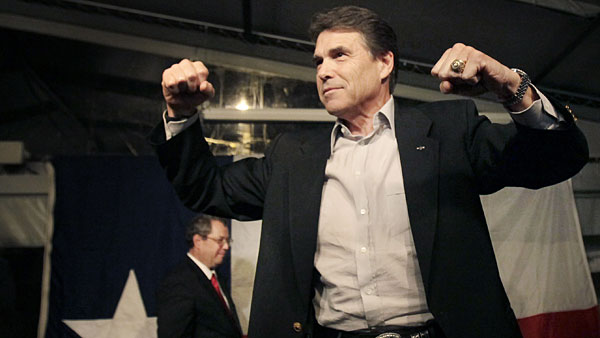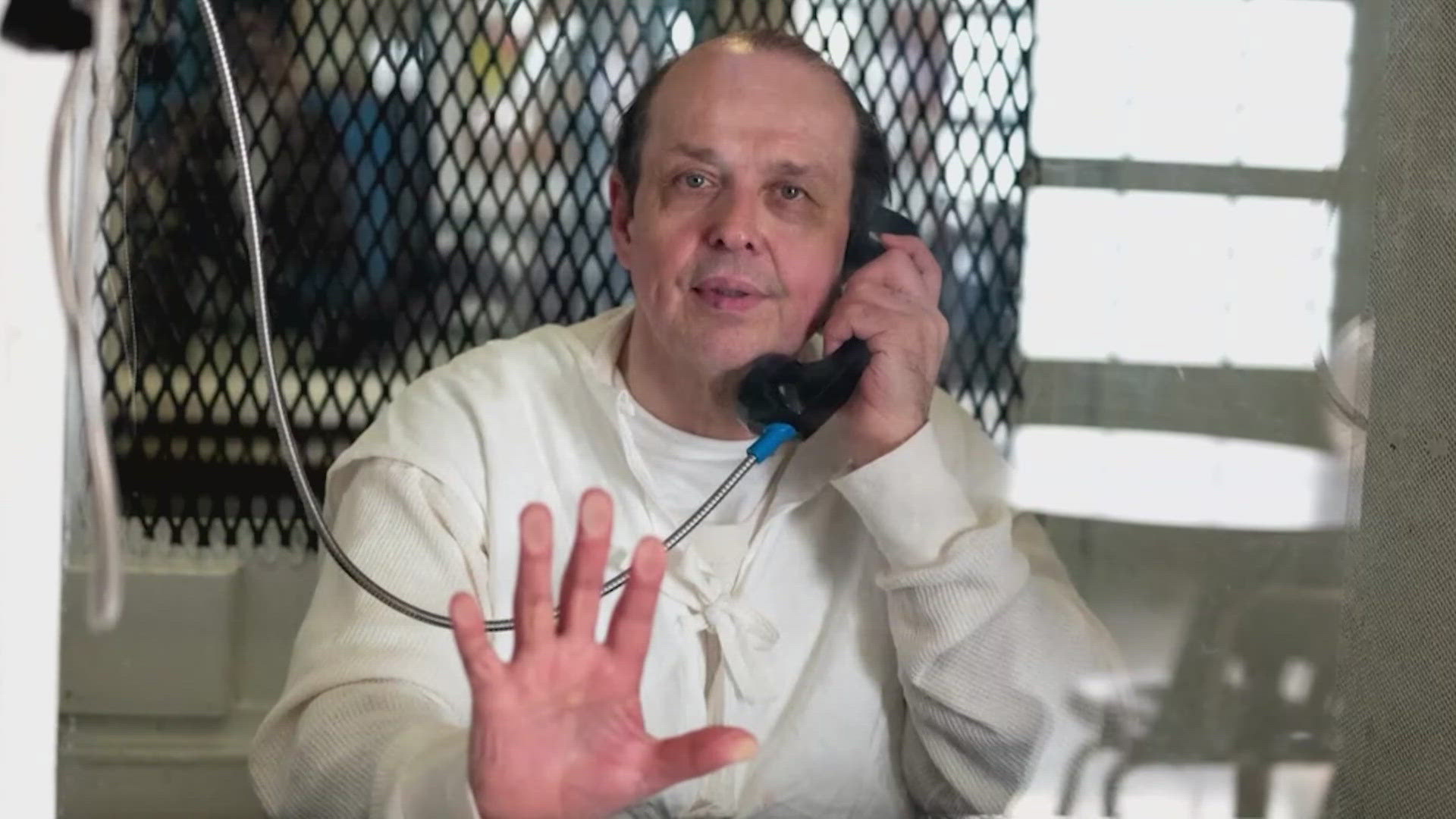DALLAS (AP) The Dallas Morning News announced Saturday it had chosen Gov. Rick Perry as the newspaper's annual Texan of the Year and recognized him for his Texas tough-guy image and firm grip on the state's highest office.
Perry, the state's longest-serving governor, is the eighth recipient of the award. Last year, the heroes of the Fort Hood shootings were recognized.
The newspaper said it selected Perry because he has become the quintessential Texas politician and face of the state. In 26 years in public office, he has never lost an election.
Perry appeared vulnerable as the year started, but he trounced popular Sen. Kay Bailey Hutchison in the Republican primary and a formidable Democratic opponent, former Houston Mayor Bill White, in the general election.
In winning an unprecedented third full term as governor, Perry successfully cast himself as an outsider and framed the campaign as a states' rights battle against an overreaching Washington, represented first by Hutchison and then by White, who worked in the Clinton administration.
Now Perry will preside over a state legislature that has a GOP supermajority in the House that, if united, can trump any Democratic opposition.
While his record as governor remains open for discussion, Perry's political instincts have been nearly infallible. With cowboy swagger and bold declarations, he has carved his own path, ducking debates and flirting with secession, the newspaper wrote. Foes and fans of our polarizing governor both acknowledge Perry's impact on Texas politics. In a weak-governor state, he has seized a bullhorn, making himself heard across Texas and beyond.
Supporters laud him as a consistent, dependable conservative. He protects business interests and is committed to keeping taxes low in Texas even if the resulting cutbacks are painful.
Perry's detractors point to the consequences of fiscal austerity, including the state's bottom-of-the-barrel rankings in categories from the number of children without health insurance to the number of adults without high school diplomas. They say the governor is overly concerned about political fallout and alarmingly unconcerned about developing and pushing through a coherent legislative agenda.
First elected as a Democratic lawmaker from West Texas, Perry was among the House's young Pit Bulls, a small group known for budget-cutting zeal. In his third term, Perry shifted to the GOP as the state moved in that direction.
Perry moved up the political ladder, landing two terms as agriculture commissioner before eking out a win to become lieutenant governor in 1998.
Two years later, he ascended to governor when George W. Bush was elected president, and he kept his winning streak alive with an easy re-election in 2002.
But four years later, Perry lost steam. He shared the ballot with four other candidates, and more than 60 percent of voters indicated they wanted someone else to lead the state. Hutchison, dubbed the most popular politician in Texas, was likely to run against him the next time, leading some to wonder whether Perry would call it quits after two full terms.
Early polls showed Hutchison with as much as a 25-point lead, and Perry sometimes appeared to be stumbling toward election season.
During the 2009 legislative session, he pursued a limited agenda and exerted little leadership. He started talking about the 10th Amendment and state sovereignty hardly hot-button issues at the time. And he was ridiculed for playing along with a serious discussion of secession at a tea party rally.
Perry's message resonated, though, and he sold voters on his claim that Hutchison was part of the problem because she was a Washington politician. Then he went on to handily defeat White, his most formidable Democratic challenger yet, with an unorthodox strategy.
Perry campaigned from lectern to lectern and reached out to shoppers and through social media and paid advertising. He refused to debate White and ignored the longstanding tradition of meeting with newspaper editorial boards.
The governor tapped into tea partiers' frustrations and focused on the strength of the Texas economy, telling voters that the rest of the country could learn a lot from the state he was leading.
Questions persist about whether Perry's next play will be for national office. Bill Miller, a political consultant, has predicted his longtime friend will run for higher office. Perry continues to insist otherwise.


